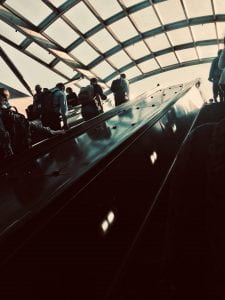For my STEP Signature Project, I worked Honda of America Manufacturing in their Marysville automotive plant. I worked in quality engineering on several projects but was mainly responsible for New model chassis issues on the new 21 Model Accura TLX. This involved analyzing technical drawings, conducting sampling tests and coordinating with other engineering teams.
One of the main things that transformed for me throughout this Co-op was my confidence in my own engineering skills. As a senior in high school and even as a freshman in college, I was very nervous and did not think that I would be able to keep up in the highly competitive field that is engineering. Working at Honda quickly crushed these fears and allowed me to focus confidently in my own work. I highly encourage everyone to gain a firsthand experience like this because it will give real world skills and interactions within their respective field. The classroom is a great place to gain a base understanding of certain topics, but Co-oping and interning is where you really apply this knowledge. I also obtained a much better understanding of the workplace and company culture. This mainly includes how people within the company interact with one another and feel about their positions.
I think what lead to my main transformation was getting to work on my own projects with very little help from my mentor. This could be a very scary task at first, but it also forced me to rely on myself and my own engineering knowledge. The best part about this is seeing the outcome of the project and knowing that it is a direct result of your own hard work. When I got to work on my own projects, it also forced me to learn on my own very quickly in order to meet deadlines and complete tasks. I mainly experienced this when working on my main project, the 21 Model Accura TLX. One specific example of this was when I was required to learn VBA in excel, a coding language that I had no experience with, and had to remake a macro program that a previous Co-op did not complete.
During my STEP Signature Project, I was required to learn a quality sampling plan for all of the new model TLXs. This entailed taking the ride heights and corner weights of the car, taking tire pressure measurements and conducting analysis on this data. I was required to drive the cars to different spots in the plant, which was also very difficult in the cramped and fast-paced factory environment. This required coordinating with different engineering teams and assembly working to assure that my work was not interfering with production flow, which I very quickly learned the importance of. When I was asked to do all of these things, I did not have the slightest understanding of their significance or how to do them, but I very quickly learned and was able to see this transformation within myself very clearly.
My relationship with my mentor and supervisor also was a large contributor to my success and transformation throughout this Co-op. Even though I tried my best to rely on myself and my own knowledge, it became clear to me that it is important to ask lots of questions to stay on task. This also made me more organized and a better note taker because keeping everything down with pen and paper proved to be very helpful to not ask the same questions multiple times. My mentor and supervisor were both always happy to answer any questions that I had in order to help me learn as much as possible.
Most importantly, I think all these changes will make me a better student in the short term and a better employee in the long term. The Co-op has made me more focused, more task-oriented and more motivated to see what else the mechanical engineering field has to offer. This motivation will carry on into the classroom and all the extracurriculars I am involved in as well. I also think that it will be very appealing to future employers that I already have some real-world work experience under my belt and could give me a competitive edge over other job candidates. This was a great way for me to experience the automotive industry and I hope to Co-op again in a different industry to gain even more experience and broaden my perspective.










